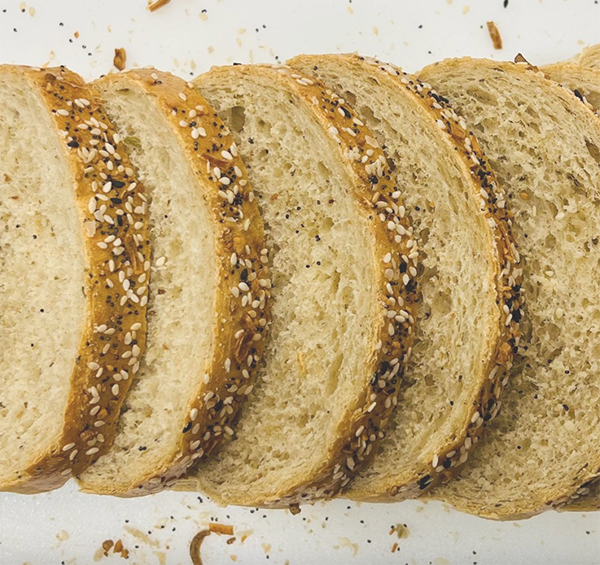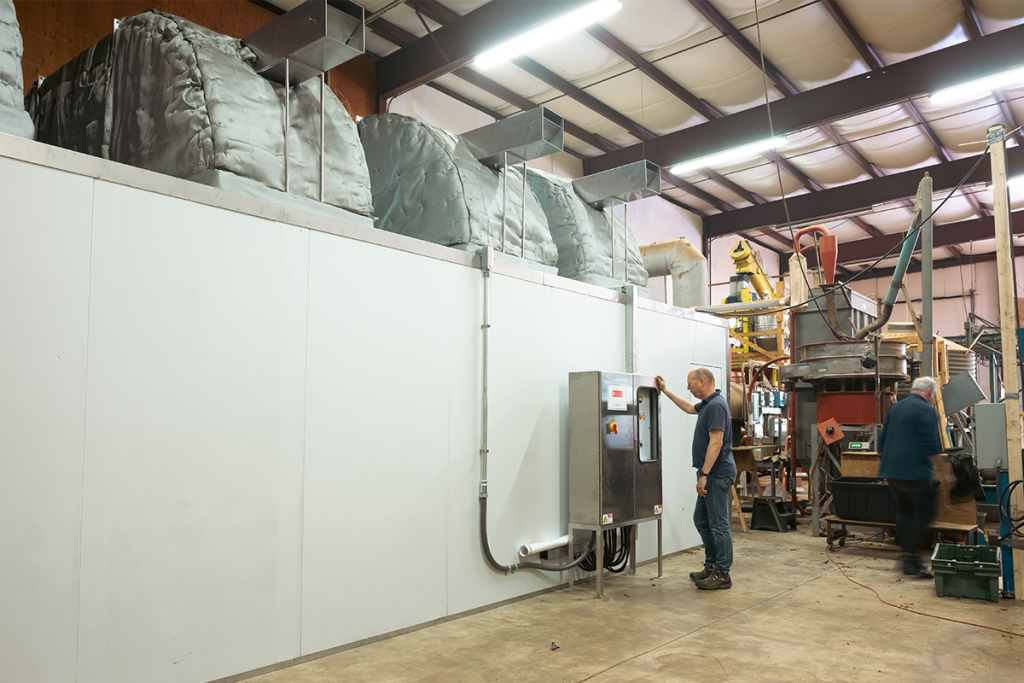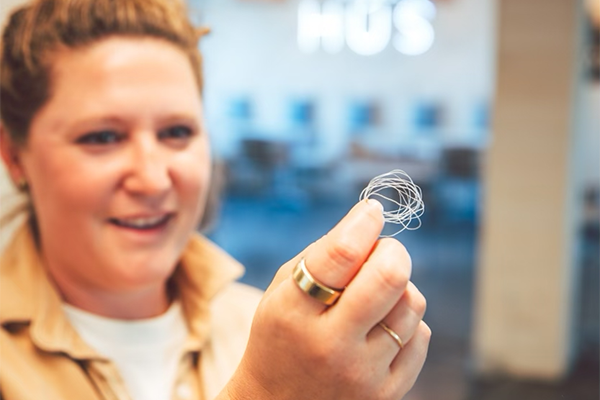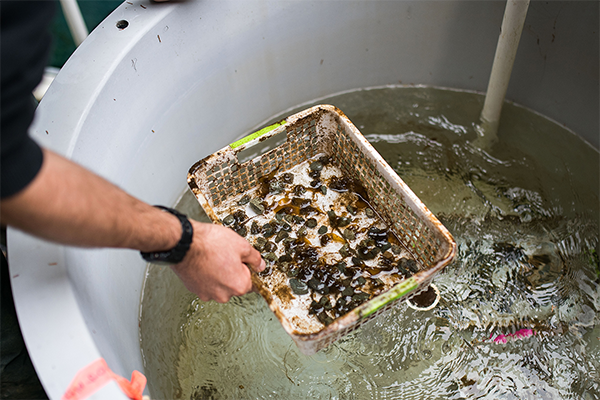First-of-its-kind line of bread products features seaweed as a primary ingredient

Sea & Flour, the first company to integrate seaweed into the commercial baking process, has received a patent for systems and methods for processing seaweed. The patent (U.S. Patent No. 11,717,010) pertains to the process of cold washing, processing and granulating seaweed for use in breads and other related products. These processes help ensure that seaweed can be successfully incorporated into high-volume baking while delivering the flavor and nutritional benefits of the sea.
“Being awarded this patent is recognition of the uniqueness of our approach and the methods we developed and perfected over several years,” said Arlin Wasserman, co-founder and CEO of Sea & Flour. “We’re making seaweed perform successfully as a key ingredient in food manufacturing including in everyday products like breads, rolls and pizza crusts, and we’re excited to see this nutritious and sustainable ingredient play a larger role in our diets.”
Sea & Flour’s first-of-its-kind line of bread products features seaweed as a primary ingredient, increasing protein content and lowering sodium compared to some standard bread loaves. Their products are carb-positive and carbon-negative, and as such, their products can help “address climate change and expand regenerative coastal agriculture and the blue economy,” while also improving the nutritional value of bread, one of the most commonly eaten foods in the United States.
“We’ve learned from extensive market research that a significant share of American consumers now want to find ways to eat seaweed more often, so we set out to identify a way to make that easy to do by incorporating it into foods that people already eat on a daily basis,” said Penelope Wasserman, co-founder and president of Sea & Flour. “The most commonly eaten food is bread.”
Sea & Flour products sequester carbon while providing nutritional benefits to reportedly help prevent some of the most common chronic diseases, like osteoporosis and hypertension, using nutrition-packed sea plants. The line of baked goods will become available in select grocery stores during the second half of this year.
“Our goal is to help food manufacturers and retailers make products that consumers already love do more for them in terms of nutritional value while also doing more for the planet,” said Wasserman.
Now that you've reached the end of the article ...
… please consider supporting GSA’s mission to advance responsible seafood practices through education, advocacy and third-party assurances. The Advocate aims to document the evolution of responsible seafood practices and share the expansive knowledge of our vast network of contributors.
By becoming a Global Seafood Alliance member, you’re ensuring that all of the pre-competitive work we do through member benefits, resources and events can continue. Individual membership costs just $50 a year.
Not a GSA member? Join us.
Author
Tagged With
Related Posts

Intelligence
Maine seaweed farming company secures a kelp dryer and promptly decides to share it
Oceans Balance in Maine secured an industrial kelp dryer from South Africa that has the capacity to process other local seaweed farming producers’ plants.

Innovation & Investment
‘Everyone is going to need a lot of seaweed’: Maine-based seaweed polymer innovator wants fisheries and aquaculture to quit plastics
Viable Gear Founder Katie Weiler joined the Advocate and Aquademia to discuss making lobster bait bags and other products with a seaweed polymer.

Innovation & Investment
Canadian ‘climate action’ company to test its green gravel for kelp forest restoration
Cascadia Seaweed, a British Columbia-based climate-action company, will test its kelp forest-restoration technology this summer off the coast of Nova Scotia.

Intelligence
Not just for noshing: Seaweed startups focus on industrial uses for the fast-growing biomass
Interest in industrial seaweed applications is driving demand for biofuels, bioplastics, textiles, animal feed, cosmetics, fertilizers and more.



